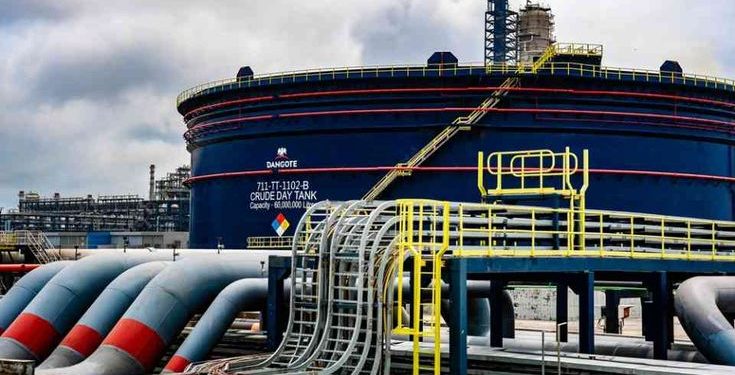The Dangote Petroleum Refinery has emerged as one of Nigeria’s most significant industrial milestones, with the potential to reshape the nation’s energy security and foreign exchange (FX) patterns. Recently, Mr. Sunday Esan, Senior General Manager of Corporate Communications at Dangote Industries, claimed that the refinery is saving Nigeria over ₦10 billion annually in FX by reducing the need for imported petroleum products. This essay evaluates the accuracy, context, and implications of that statement.
Evaluating the Claim
Mr. Esan made the declaration during the 2025 Lagos Media Week organized by the Nigeria Union of Journalists. According to him, Nigeria’s fuel import bill dropped sharply—from US$2.6 billion in Q1 2024 to US$1.2 billion in Q1 2025—and he credited this reduction largely to the ramp-up of operations at the Dangote Refinery.
Independent data supports the general trend he described. Nairametrics reported that Nigeria’s fuel import volume between January 1 and January 24, 2025 stood at about 110,000 barrels per day, the lowest level in eight years. This decline was linked to increased domestic supply from the new refinery.
Further evidence from Reuters shows that the refinery is capable of loading over 45 million liters of petrol and 25 million liters of diesel daily, indicating that domestic refining is now meeting a substantial share of national demand. This supports the narrative that the refinery has genuinely reduced Nigeria’s reliance on imported fuel.
Interpreting the ₦10 Billion FX Savings
Although the reduction in fuel imports clearly helps conserve foreign exchange, the exact figure of ₦10 billion originates from a corporate spokesperson and is not independently audited. Nigeria still imports crude oil for refining, meaning FX expenditure continues, albeit at different points in the value chain. The real impact also depends on fluctuations in the naira’s exchange rate, which can amplify or diminish savings.
Therefore, while the reported savings are credible and supported by reduced import data, the precise ₦10 billion figure should be understood as an internal estimate rather than a verified national account.
Broader Economic Implications
The Dangote Refinery is expected to play a transformative role in Nigeria’s energy and economic landscape. Plans to expand the refinery’s capacity from 650,000 barrels per day to 1.4 million barrels per day suggest an even larger future impact on domestic supply and potential fuel exports.
Reuters also reports that Dangote Industries has partnered with Honeywell to support extensive expansion efforts, demonstrating long-term commitment to boosting production by 2028.
However, the policy environment remains fluid. Nigeria recently dropped a proposed 15% fuel import duty, a decision that may influence the refinery’s competitive advantage in the local market.
Conclusion
The assertion that the Dangote Refinery saves Nigeria over ₦10 billion annually in FX is plausible, supported by substantial declines in fuel import volumes and increased domestic refining capacity. While the specific figure is not independently verified, the broader trend of FX savings and reduced import dependence is well supported by credible reporting.
As operations stabilize and expansion continues, the refinery’s contribution to Nigeria’s economic resilience—especially in terms of foreign exchange conservation—is likely to grow even more significant.























































